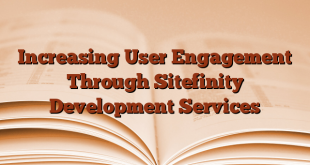So you are looking for a certificate course from a renowned university? Even if you can find one, there may be an issue with the location. But there is no need to worry about the distance. E-learning allows you to access the knowledge of professionals from the comfort of your own home.
WHO IS ANALYTICS?
Analytics are in high demand in the business sector. Companies have become aware of the fact that a lot of relevant information is hidden in their customer files. They try to hire professionals who understand how to analyze the data to provide insights that lead to better business decisions and greater profitability.
UNIVERSITY COURSES
1) BASIC STATISTICS – Topics included in this discipline are data types, probability, random variables, plots, Chi distribution technique, central unit theorem, sampling funnel, etc.
2) TESTING HYPOTHESES – This course includes the formulation of hypothesis statements, their use, techniques such as parametric tests (One Way ANOVA, Chi-Square Test, Paired T-Test, etc.), nonparametric tests (MANN-Whitney test, KRUSKAL -Wallis tests, etc.)
3) REGRESSION ANALYSIS – This course will provide students with knowledge of the measure and analysis of correlation coefficients, prediction intervals and confidence intervals, regression techniques such as linearity, equal variance, etc.
4) FORECAST – This discipline includes learning the strategy of forecasting, analysis through graphs and charts, correlograms, forecasting methods like the naive method consisting of simple and moving averages, model-driven methods consisting of quadratic, exponential and econometric models, etc .
5) DATA MINING OR MACHINE LEARNING – Various topics are covered in this subject such as: B. matrix algebra, affinity analysis, dimensionality reduction techniques (principal component analysis, single value decomposition), supervised vs.
6) TABLEAU – In this area, students will learn how to navigate the user interface, how to access help, how to connect different data sources, how to sort and filter data and perform operations with crosstabs, create different maps, charts and dashboards etc.
7) PYTHON- It is software used to perform data mining techniques as well as regression techniques.
8) DATA VISUALIZATION – Great emphasis is placed on teaching students three important principles of visualization along with the Lie Factor, Affordance Theory, the Data-Ink Ratio, Tufte’s Principle of Analytical Design, and the Rules of Graphic Integrity.
9) MINITAB- This software is designed to perform hypothesis testing.
10) XLMINER- This software is designed to perform various forecasting techniques.
REDEFINE YOUR CAREER IN ANALYTICS
So, if you are planning to expand your knowledge and gain expertise in this field, it will not only improve your CV, but also increase your chances of getting a promising job. The training is conducted by the best professionals who have years of experience and in-depth knowledge in the field. They focus on providing more practical knowledge related to real-world problems and how to treat them according to analytical principles. The individual taking this course must have a basic knowledge of the industry and learn applicable concepts in order to get the most benefit from this training. The demand for analytics is growing, especially in large organizations. In addition, setting up e-learning can help you acquire knowledge through videos anywhere and anytime.
Thanks to Shalini Madhav | #Types #Analytics #Certification #Courses
 eLearning Weblog The Distance Learning, Online Degree & Education Hub
eLearning Weblog The Distance Learning, Online Degree & Education Hub



